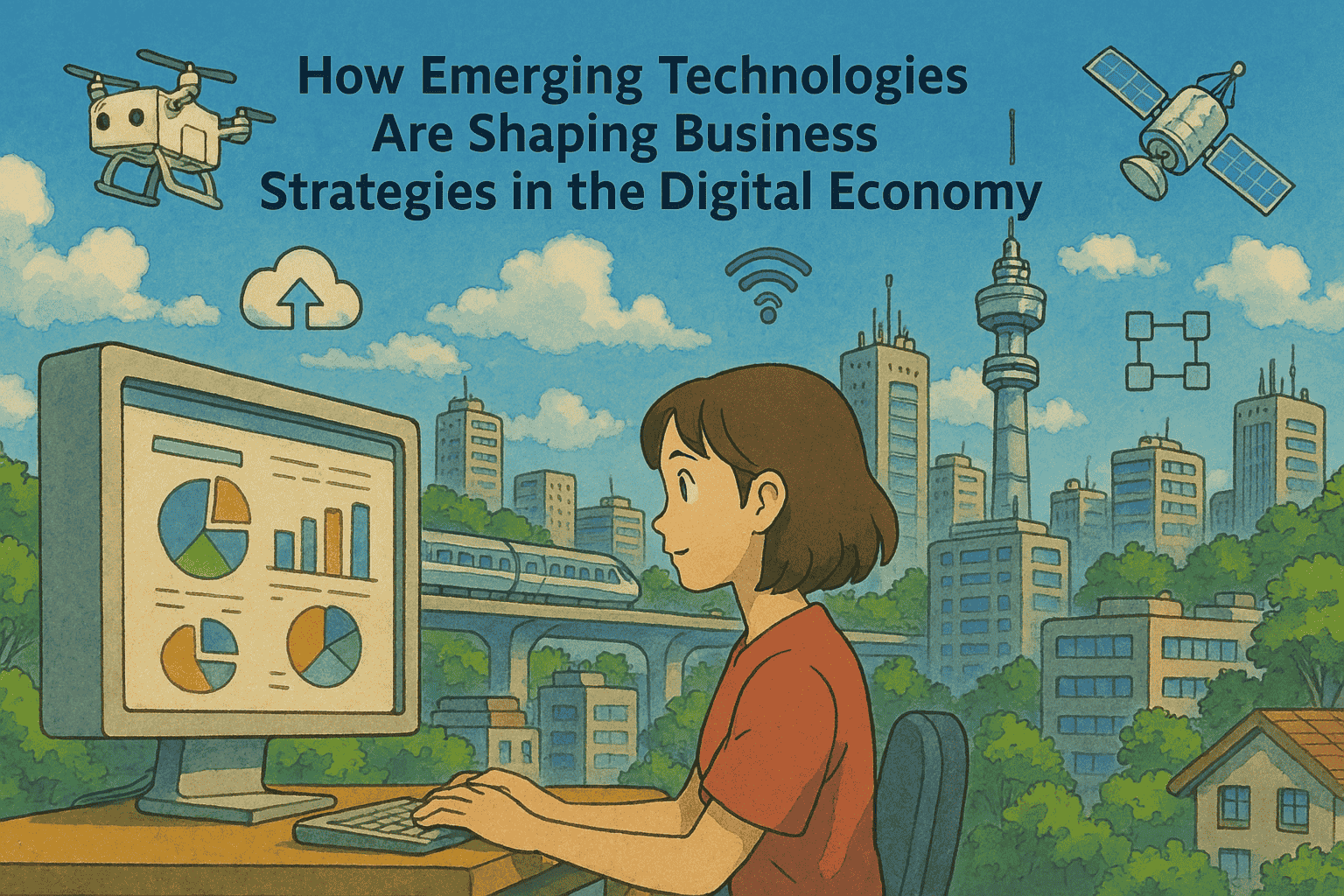How Emerging Technologies Are Shaping Business Strategies in the Digital Economy
In the rapidly evolving landscape of the 21st century, emerging technologies are no longer optional enhancements—they are core drivers of transformation, innovation, and competitive advantage. From artificial intelligence and blockchain to the Internet of Things and cloud computing, these tools are revolutionizing how businesses operate, make decisions, interact with customers, and plan for the future.
This article explores how emerging technologies are reshaping business strategies in the digital economy and what forward-thinking organizations can do to stay ahead of the curve.
Understanding the Digital Economy
The digital economy refers to an economy that is based on digital computing technologies. It encompasses all business, social, and cultural activities supported by the internet and digital tools. At its core, the digital economy is built on data, connectivity, and innovation.
As this economy expands, businesses must pivot their traditional strategies and embrace digital-first thinking to survive and thrive.
Key Emerging Technologies Transforming Business Strategies
1. Artificial Intelligence (AI) and Machine Learning
AI and machine learning are enabling businesses to automate processes, personalize customer experiences, and gain predictive insights. These technologies allow companies to make faster, data-driven decisions and reduce operational inefficiencies.
Strategic Impacts:
-
Enhanced customer service with chatbots and virtual assistants
-
Predictive analytics for market trends and consumer behavior
-
Smarter inventory and logistics management
2. Cloud Computing
Cloud technology has revolutionized how businesses manage data, applications, and IT infrastructure. It supports scalability, collaboration, and business continuity.
Strategic Impacts:
-
Lower IT costs and infrastructure maintenance
-
Real-time access to data from anywhere
-
Faster deployment of applications and services
3. Blockchain
Blockchain offers transparent, secure, and decentralized solutions for data management, transactions, and supply chains. It is particularly transformative for finance, logistics, and contract management.
Strategic Impacts:
-
Enhanced security and reduced fraud
-
More efficient and trustworthy supply chains
-
Smart contracts that automate legal agreements
4. Internet of Things (IoT)
IoT connects physical devices to the internet, enabling real-time monitoring and data collection. It transforms industries like manufacturing, retail, agriculture, and healthcare.
Strategic Impacts:
-
Predictive maintenance for equipment
-
Real-time customer data from connected products
-
Automation of routine tasks
5. Big Data and Advanced Analytics
With the explosion of digital data, big data technologies help businesses make sense of vast information sets. Analytics tools convert raw data into actionable insights.
Strategic Impacts:
-
More precise customer segmentation
-
Optimized marketing campaigns
-
Improved decision-making across departments
6. 5G Technology
5G offers faster, more reliable wireless connectivity, opening doors to innovations in remote work, virtual experiences, and mobile commerce.
Strategic Impacts:
-
Seamless remote collaboration and mobile access
-
Enhanced customer experiences through AR/VR
-
Real-time data transfer for smart devices
How Businesses Are Adapting Their Strategies
1. Digital Transformation as a Core Objective
Companies are no longer treating digital as a supplement. It is now a strategic priority. Investments in digital tools, platforms, and infrastructure are necessary for innovation and agility.
2. Customer-Centric Models
Emerging technologies allow businesses to understand, anticipate, and meet customer needs better than ever before. Personalization, convenience, and speed are now baseline expectations.
3. Agile and Data-Driven Decision Making
With real-time analytics and machine learning, companies can shift strategies quickly in response to market changes, customer behavior, or internal metrics.
4. Embracing Ecosystem Collaboration
Tech-driven strategies often require partnerships—with cloud providers, software developers, data scientists, and innovation hubs—to co-create value.
5. Upskilling and Workforce Transformation
To harness new technologies, businesses are investing in digital skills training, hiring tech-savvy talent, and redesigning roles for a hybrid human-digital workforce.
Challenges and Considerations
While the opportunities are vast, businesses must also navigate:
-
Cybersecurity risks due to increased digital footprints
-
Technology adoption gaps in traditional industries
-
Ethical concerns around data privacy, AI, and automation
-
Cost of implementation for smaller enterprises
Overcoming these challenges requires strong leadership, a future-focused mindset, and a commitment to continuous learning and innovation.
Future Outlook: Strategy in the Digital Age
Looking ahead, successful companies will be those that:
-
Align technology with long-term business goals
-
Continuously adapt and experiment
-
Place data and digital experiences at the heart of their operations
-
Foster a culture of innovation and digital fluency
Final Thoughts
Emerging technologies are not just tools—they are strategic enablers reshaping every facet of business. In the digital economy, businesses that leverage these innovations thoughtfully and strategically will unlock new revenue streams, improve efficiency, and build deeper relationships with their customers.
Now is the time to embrace change, invest in digital transformation, and future-proof your business strategy.









